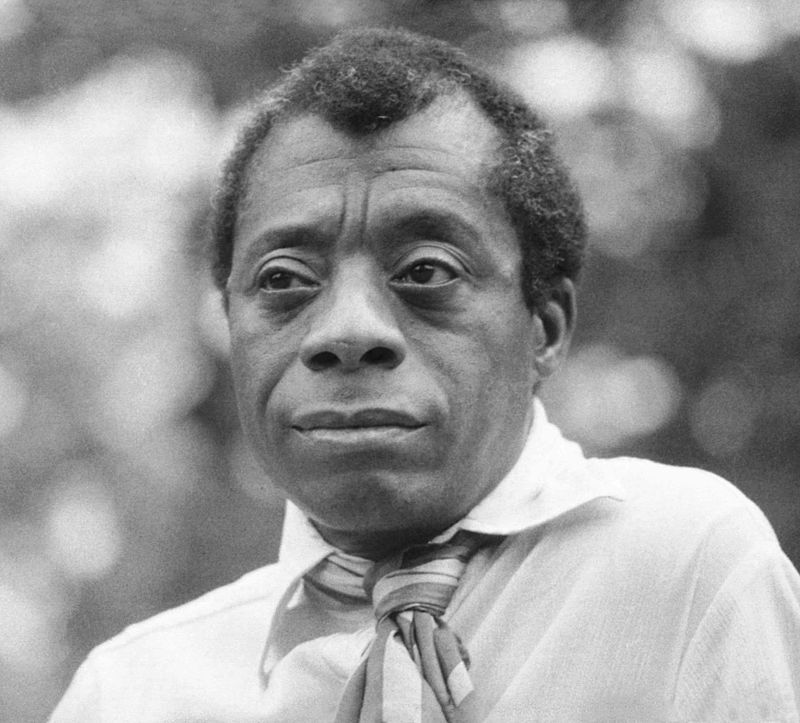
Two big things happened last Friday. There was the obvious one: Pope Francis released Amoris Laetitae, “the Joy of Love,” his exhortation on love, sex, marriage, and the family, and a follow-up to the two-year Synodal process he inaugurated in October of 2014. Maybe you missed the other one: Literary Hub announced that the near-unanimous winner of its “Tournament of Literary Sex Writing” was James Baldwin, for a passage from Giovanni’s Room.
Those might seem unrelated to you. But try reading the end of Baldwin’s passage next to the words of Pope Francis.
First, Baldwin:
I started to move and to make some kind of joke but Joey mumbled something and I put my head down to hear. Joey raised his head as I lowered mine and we kissed, as it were, by accident. Then, for the first time in my life, I was really aware of another person’s body, of another person’s smell. We had our arms around each other. It was like holding in my hand some rare, exhausted, nearly doomed bird which I had miraculously happened to find. I was very frightened; I am sure he was frightened too, and we shut our eyes. To remember it so clearly, so painfully tonight tells me that I have never for an instant truly forgotten it. I feel in myself now a faint, a dreadful stirring of what so overwhelmingly stirred in me then, great thirsty heat, and trembling, and tenderness so painful I thought my heart would burst. But out of this astounding, intolerable pain came joy; we gave each other joy that night. It seemed, then, that a lifetime would not be long enough for me to act with Joey the act of love.
Now Francis:
A healthy sexual desire, albeit closely joined to the pursuit of pleasure, always involves a sense of wonder, and for that very reason can humanize the impulses. In no way, then, can we consider the erotic dimension of love simply as a permissible evil or a burden to be tolerated for the good of the family. Rather, it must be seen as a gift from God that enriches the relationship of the spouses. As a passion sublimated by a love respectful of the dignity of the other, it becomes a ‘pure, unadulterated affirmation’ revealing the marvels of which the human heart is capable.
What’s more, Francis writes that sex is “a kind of spontaneity” in which “the human person becomes a gift,” an “interpersonal language wherein the other is taken seriously, in his or her sacred and inviolable dignity,” leading to the kind of joy that is “an expansion of the heart.”
Is there a better illustration of Francis’ vision than Baldwin’s words? For Baldwin, sex is filled with spontaneity, wonder, joy; it’s both spiritual and frankly physical, an occasion for humor and vulnerability. It calls us to something better, even if we usually fall short of that call. In short, it’s an encounter of the most human kind. Exactly as Francis describes it.
Of course, Baldwin’s narrator, David, is remembering an experience with his (male) friend Joey, while Pope Francis dutifully recites the Synod Fathers’ insistence that “there are absolutely no grounds for considering homosexual unions to be in any way similar or even remotely analogous to God’s plans for marriage and the family.” But Baldwin’s writing echoes the examples of so many of our LGBT friends and neighbors, and, in Amoris Laetitae, Francis tells us that the examples of our friends and neighbors—more than general rules—are what precisely what we should be paying attention to.
It’s pretty easy to see why William Saletan writes that when Catholic teaching on homosexuality collapses, even if that’s centuries from now, “the church will quote passages from ‘Amoris Laetitae’ and documents like it.” Next to examples like Baldwin’s, the Synod Fathers’ words are weak as straw.



